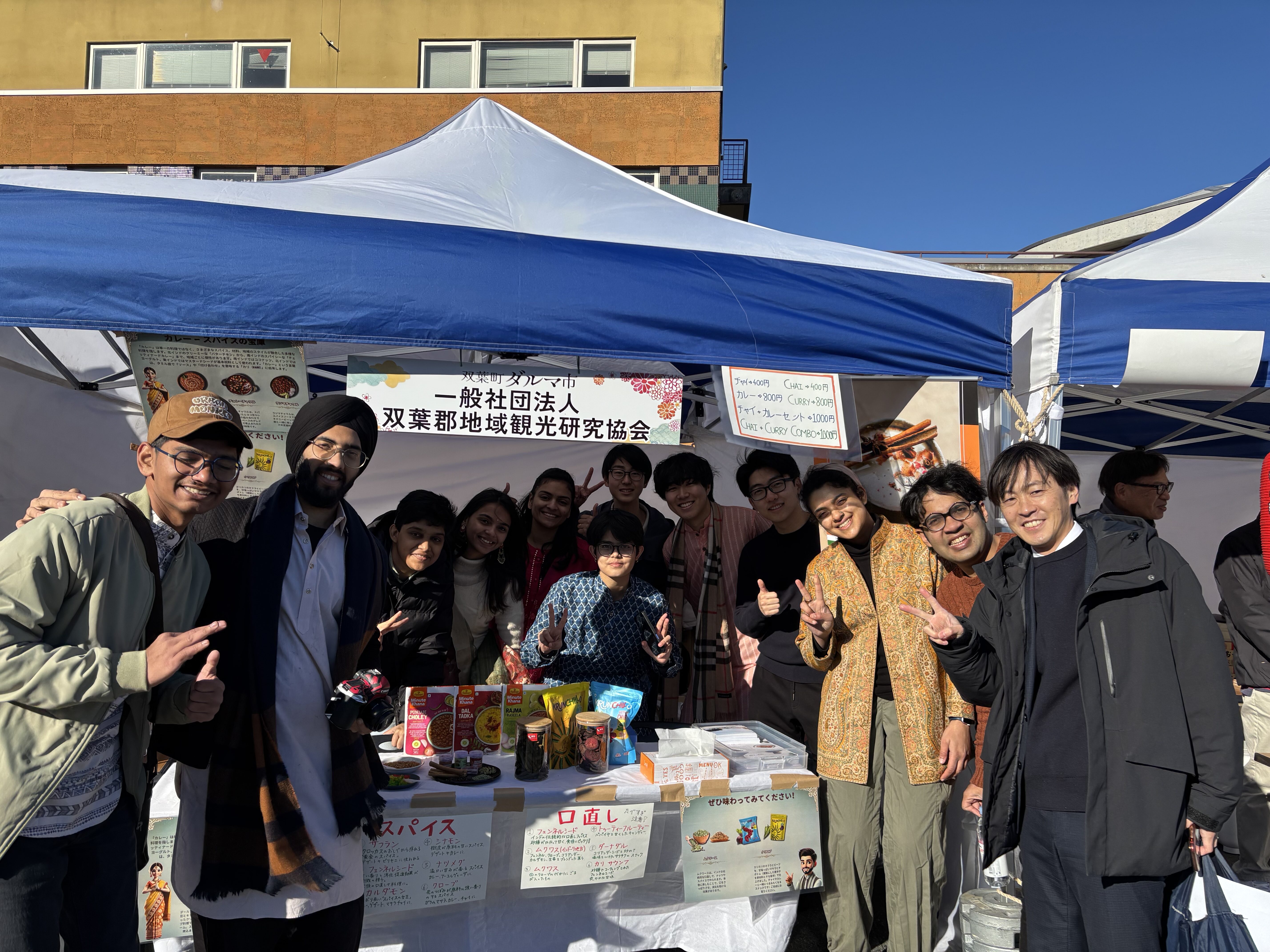
At this year’s Daruma-ichi festival in Futaba, the aroma of authentic Indian chai and curry added a unique cultural exchange. Students from NSBT and Tohoku University, in collaboration with F-ATRAs, introduced festival-goers to Indian flavors highlighting the power of food in building social connections.
Note: This content belongs to a 5-part report about the Fukushima Socio-Industrial Experience Program sponsored by Fukushima Innovation Coast Framework (FIPO) and conducted by F-ATRAs (Futaba Area Tourism Research Association) in January, 2025.
The Daruma-ichi festival in Futaba town witnessed a unique addition this year – the aromatic presence of authentic Indian chai and curry. The festival, held on January 11-12, 2025, marked a significant milestone in Futaba’s journey of revitalization while creating an unexpected bridge between Japanese and Indian cultures.
The Daruma-ichi festival, a centuries-old tradition in Futaba town, holds deep cultural significance for the region. Originally held at the historic Jōrenji temple, this festival celebrates the Daruma doll, a profound symbol of perseverance and good fortune in Japanese culture. Following the 2011 disaster, the festival relocated to Iwaki city but made a triumphant return to Futaba in 2023, symbolizing the town’s resilience.
The connection between Daruma and India runs deeper than many realize. The Daruma doll represents Bodhidharma (known as Daruma in Japanese), the Indian Buddhist monk who founded Zen Buddhism in China during the 5th or 6th century.
F-ATRAs’ participation in the festival brought together students from NSBT (Nath School of Business and Technology), Aurangabad, and Tohoku University in a heartwarming display of cross-cultural collaboration. Their stall offered a taste of India through three authentic curry dishes – Chana Masala, Dal Tadka, and Rajma Masala – alongside traditionally prepared chai.
The preparation was meticulous, with spices specially sourced from India to ensure authenticity. The stall setup became a cultural lesson in itself, with whole spices on display offering visitors a glimpse into the rich traditions of Indian cooking. What made the exchange particularly special was how naturally the students adapted to each other’s business cultures. Indian students embraced the Japanese greeting “Irasshaimase,” while Japanese students adopted the Indian approach of personalized marketing, visiting other stalls to promote their chai.
The team’s thoughtful touch of distributing postcards with chai recipes allowed visitors to carry a piece of this cultural exchange home. The warm responses from festival-goers were touching, with many expressing how the chai brought comfort on the cold winter day and appreciation for the international participants who had traveled so far to share their culture.
This collaboration at the Daruma-ichi festival represents more than just a successful food stall – it embodies the power of food and drink to transcend cultural boundaries and create meaningful connections. In Futaba, a town rebuilding itself, the presence of international students serving traditional Indian beverages and food alongside local festival fare demonstrates how revitalization can take new forms.
